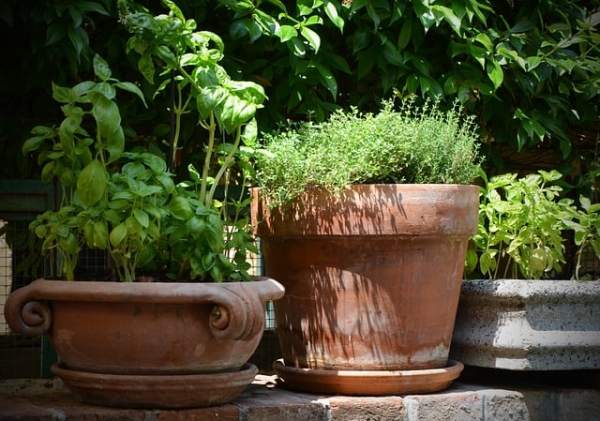
QUESTION: Do herbs really need fertilizer? Or can I just grow them? — Chrissy F
ANSWER: Herbs don’t need as much fertilizer as many of the plants in the garden because they aren’t heavy feeders. However, especially when you grow herbs in containers, they benefit from an occasional application of general-purpose liquid fertilizer, an organic water-soluble fish emulsion or seaweed fertilizer, or a commercial blend created specifically for herb plants. Some gardeners don’t fertilize herbs grown directly in the ground at all, especially if they use compost or mulch to nourish their plants. If your herbs are growing strong, they may not need fertilizer. Plants that need to be fertilized will wither or shrink one or two weeks after the peak of their growth cycle.
Refer to the instructions on the fertilizer packaging for dosage and application schedule. If your fertilizer isn’t formulated especially for herbs, however, cut the dosage given on the package in half to get the appropriate dosage for herb plants growing in the ground, or reduce to one quarter of the recommended amount for herbs growing in containers. Similarly, don’t follow the application schedule on the package unless you’re using a fertilizer just for herbs. Instead, apply your reduced dosage every six weeks in spring, summer, and fall, providing no fertilizer at all in winter. Giving your herb plants too much fertilizer results in overly large plants that don’t have the delicious flavor they do at smaller sizes.
Always apply liquid fertilizer at the base of the plant, and do your fertilizing in the morning. Plants are stressed by midday heat, which keeps them from taking full advantage of the nutrients in fertilizer if you apply it in the middle of the day or later. Water your plants before you apply fertilizer—even liquid fertilizers that are dissolved in water—to prevent burning the roots of your plants with the fertilizer.
The exception is Mediterranean herbs (such as basil, oregano, parsley, rosemary, sage, and thyme), which flourish when fertilized with tomato feed in midsummer. This treatment helps get the Mediterranean herbs ready for the upcoming dry weather by strengthening them.
Learn More
20 perennial herbs that grow back each year
Herbs vs. Vegetables, explained
List of essential herbs to grow at home

Leave a Reply